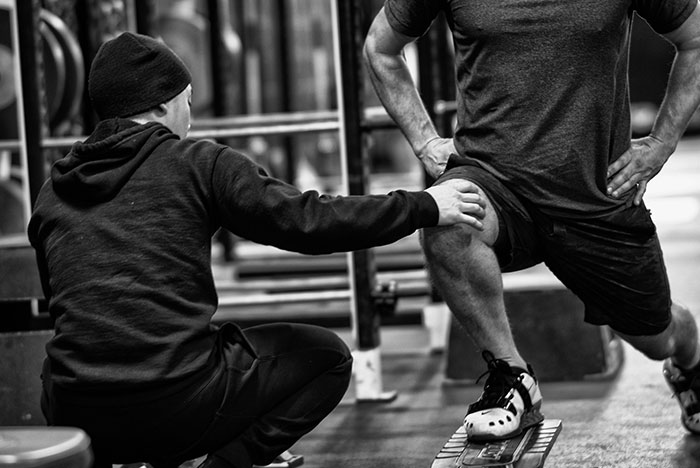There are thousands of training programs available on the market. Both free and paid programs from top strength and conditioning coaches. There are websites, mobile apps, PDFs, videos, and social media channels where athletes share their programs.
Just because you have the instructions and tools to put together an Ikea bed, you still need to take a step back and think, “is this the right bed for my home?”
A training program is useless without a plan.
The issue with online ‘solutions’ is that what works for someone else, may not work for you.

What is a Plan?
A coach is able to get a deeper understanding of you and piece together a plan out of your lifestyle, goals, and your timeline in order to get the optimal results you’re looking for.
We define specific goals such as; making the team, getting drafted, becoming stronger, faster, etc. in a specific time frame. This typically occurs in the off-season for most sports, which is about 3-5 months.
From there, the coach works backward to define milestones which are important to achieve your goals, then they prioritize and build out a schedule.
The coach also takes into account things like family vacations, daily schedule, injuries, and if there’s skill work needed for your particular sport.
When we train hockey players, for example, we find that stick handling is a weakness for some, so we ensure that they are fitting that into their daily training schedule.
Social Media is Ruining the Coach-Athlete Relationship
Banning athletes from using social media would be impossible. So it’s something every coach now needs be able to work around.
It’s often a concern that comes up when I speak to other coaches. Many, like the late Charlie Francis, don’t even hand out paper programs to their athletes anymore for fear that they will compare what they have on paper with stuff they see on the internet amongst other reasons.
In our experience, we don’t want an athlete to be a slave to what’s programmed. We are assessing every day, and sometimes we need to shift or drop an exercise based on what we observe when an athlete is performing certain exercises.
The issue here is that athletes are constantly comparing themselves to other athletes they see online.
“What are they doing in these training videos? Why am I not doing this cool exercise? Why don’t I see the same results from my coach?”
It can be a disruption of the training process.
Every high-level coach has a plan that is based on long-term success and has to be executed step-by-step and adjusted for what happens to the athlete in real life.
Trusting The Process
Trust is the conduit or the lifeblood needed by both the coach and the athlete in order to excel and grow. Without this level of trust, both the athlete and the coach will lose.
An educated athlete is an easier athlete to train, but it’s a double-edged sword. 99.9% of the time, the athlete does not understand the complexity of the training process, how long it takes to see results, or even where they are in the process.
I often see athletes implementing programs they aren’t even ready for yet, all because they saw someone on Instagram or YouTube do it. Perhaps you’re not at that stage in your training process yet, or perhaps that program was designed to fix a specific issue for that online athlete. Or maybe that online athlete is a freak and can do anything no matter how ridiculous the exercise is and still go out and put up 50 points in a game.
Life isn’t fair and some athletes are born with gifts we can’t explain, even they can’t tell how they do what they do. It just comes easily to them.
That’s why it drives me crazy when I see these circus exercises that have no transfer to the athletes given sport at all. But because this talented athlete is doing it on Instagram, everyone follows them blindly without asking these important critical questions.
Relationships Fail Because of Bad Communication
Programming for athletes is an art. And if the trust in my art isn’t there between myself and an athlete for whatever reason, then we will have to part ways.
I often warn my athletes to be careful and always question whatever they see on social media. They need to trust the plan that their coach has customized for them and if they are unsure, they need to communicate. It’s important to regularly check in with your coach to make sure you’re on the same page, to ask questions about their plan and make sure they understand your ultimate goal.
Make sure you have a plan, not just a training program.
In sports, a winning outcome is often measured in milliseconds or by inches.
That difference is derived from being where others around you push, challenge, and elevate you beyond your mental & physical limits.
And that all starts with a plan.
About the Author: Clance Laylor
Related Articles


